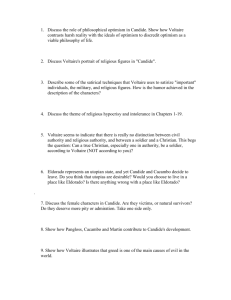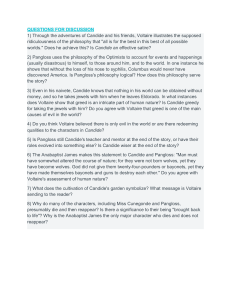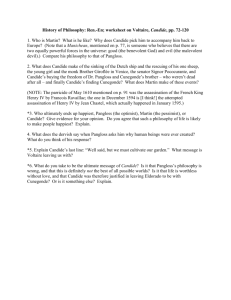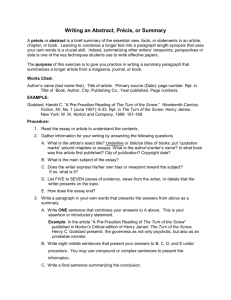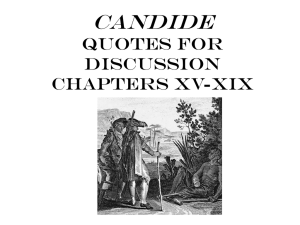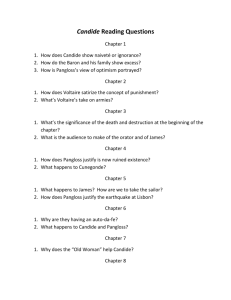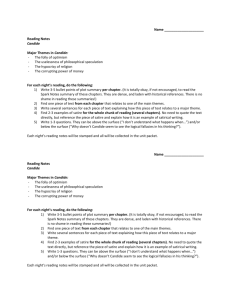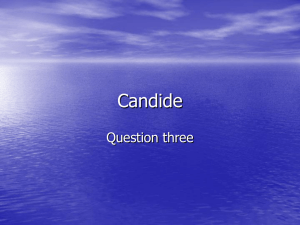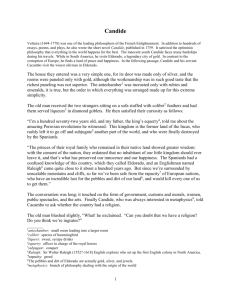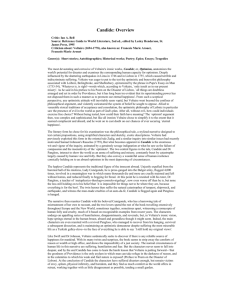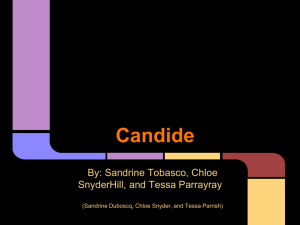Dec. 3
advertisement
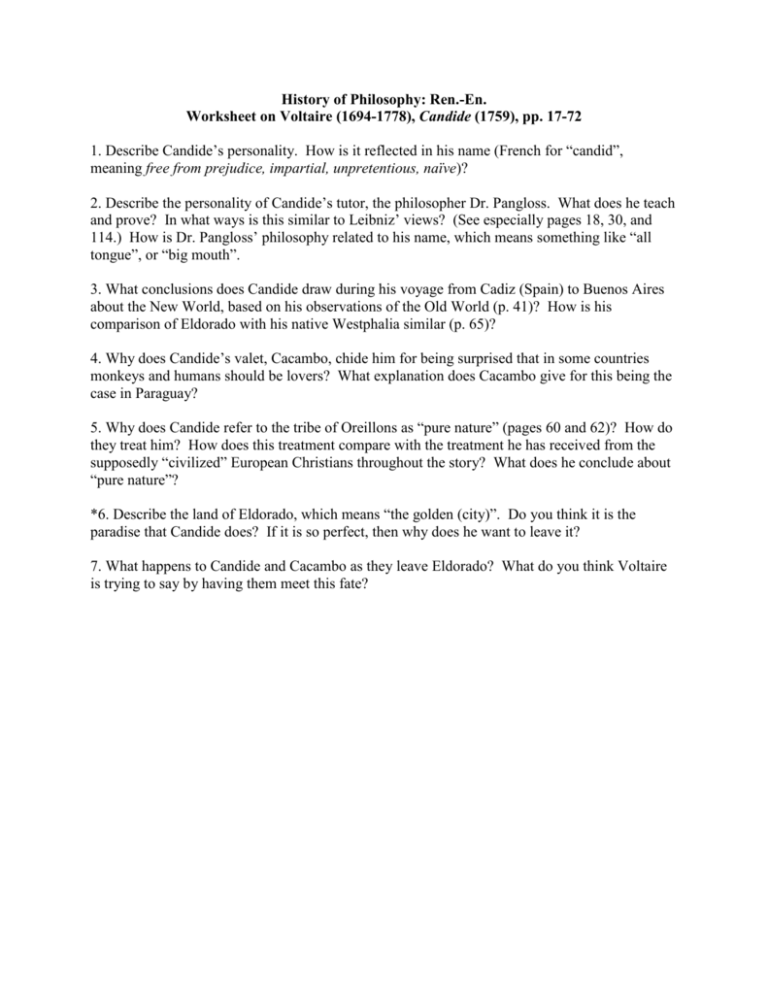
History of Philosophy: Ren.-En. Worksheet on Voltaire (1694-1778), Candide (1759), pp. 17-72 1. Describe Candide’s personality. How is it reflected in his name (French for “candid”, meaning free from prejudice, impartial, unpretentious, naïve)? 2. Describe the personality of Candide’s tutor, the philosopher Dr. Pangloss. What does he teach and prove? In what ways is this similar to Leibniz’ views? (See especially pages 18, 30, and 114.) How is Dr. Pangloss’ philosophy related to his name, which means something like “all tongue”, or “big mouth”. 3. What conclusions does Candide draw during his voyage from Cadiz (Spain) to Buenos Aires about the New World, based on his observations of the Old World (p. 41)? How is his comparison of Eldorado with his native Westphalia similar (p. 65)? 4. Why does Candide’s valet, Cacambo, chide him for being surprised that in some countries monkeys and humans should be lovers? What explanation does Cacambo give for this being the case in Paraguay? 5. Why does Candide refer to the tribe of Oreillons as “pure nature” (pages 60 and 62)? How do they treat him? How does this treatment compare with the treatment he has received from the supposedly “civilized” European Christians throughout the story? What does he conclude about “pure nature”? *6. Describe the land of Eldorado, which means “the golden (city)”. Do you think it is the paradise that Candide does? If it is so perfect, then why does he want to leave it? 7. What happens to Candide and Cacambo as they leave Eldorado? What do you think Voltaire is trying to say by having them meet this fate?

